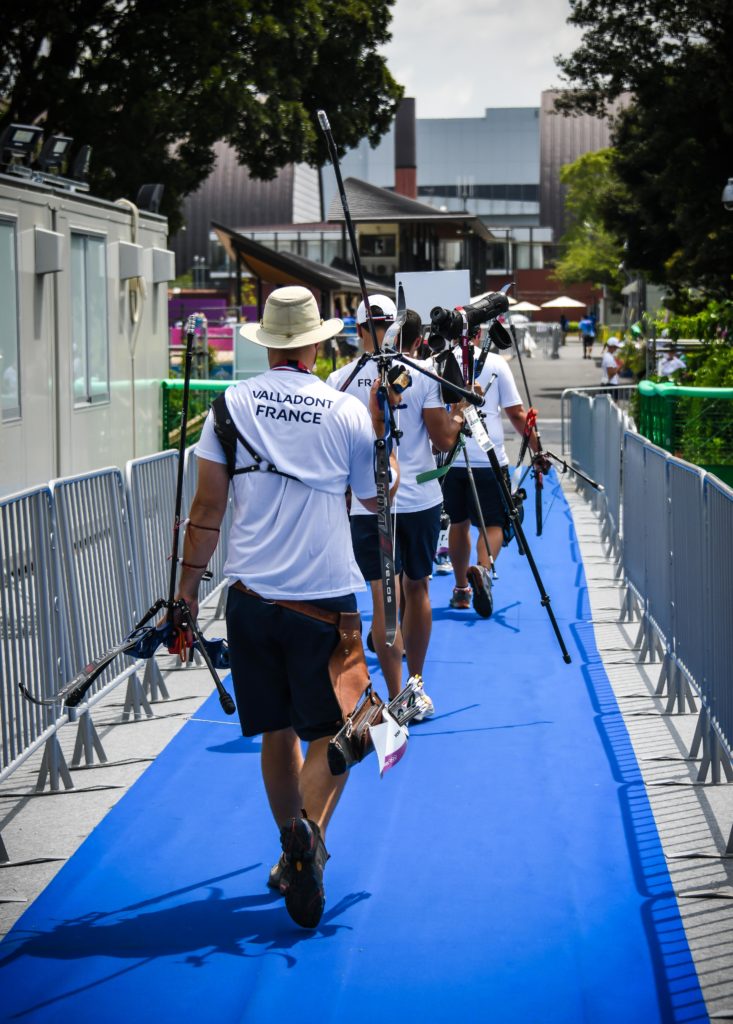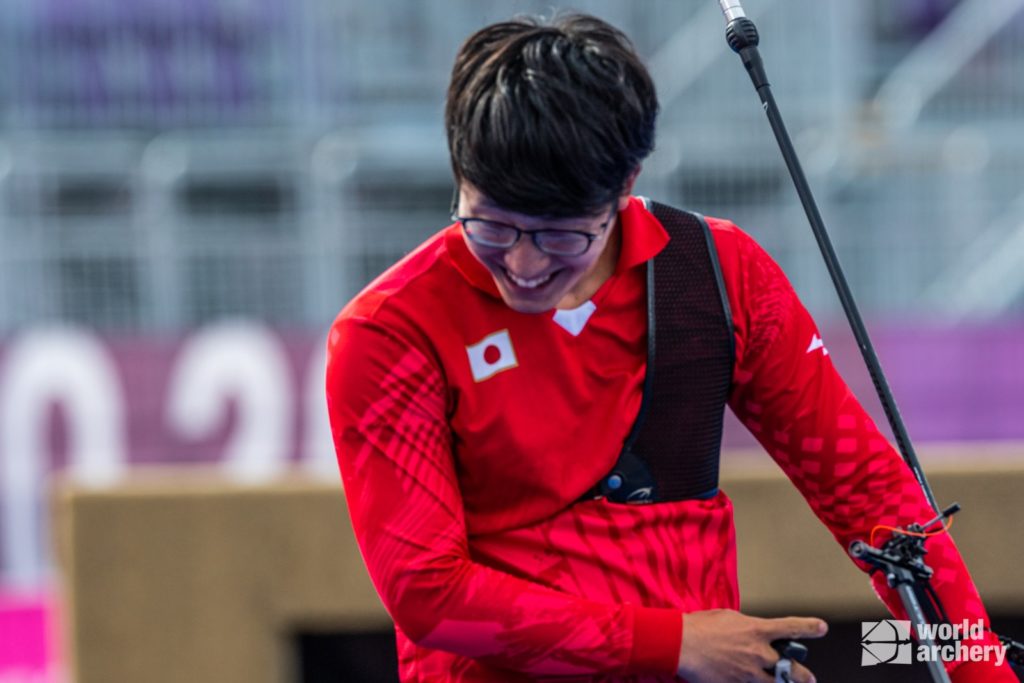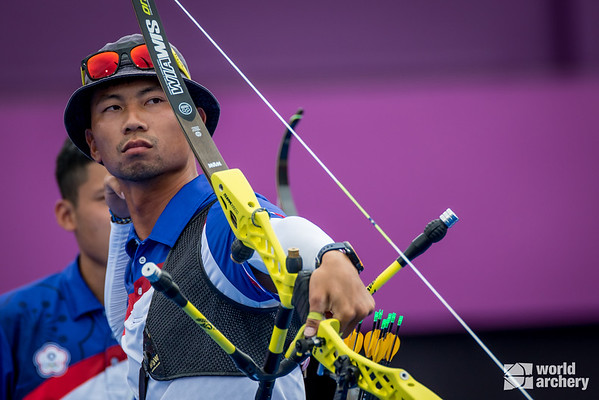It’s early morning, and the opening men’s session gets underway, a little subdued. The USA are taking on France. After a dull warm-up of a first set, both sides are getting moving when Jean-Charles Valladont posts a six. Quizzical looks all around, but then on his next arrow Valladont draws, somehow runs down the clock, turns around and shrugs. The buzzer sounds. It’s a zero for France. Valladont shrugs again. France never really get back into the match and the USA move on, 6-0.
It appears the French coach or his teammates didn’t count him down through the last few seconds, as is normal under time pressure. Or they did, and he wasn’t paying attention. A ‘lack of communication’ was blamed. “We are devastated, yes, because we must not make mistakes like that”, says Plihon. Platitudes are said in the mixed zone, but walking off, the team are looking daggers at Valladont, who was controversially part of the mixed team competition on Saturday, despite finishing in 57th place in ranking and rock bottom of the French men. (He didn’t get far in that either).
Even if France were the underdogs, to lose a match with such a clunky mistake is intolerable. It was a reminder that the best-laid plans in archery, on the biggest stage of all, can be undone by just a moment’s inattention – although in the end, the form book mostly prevailed today. Mercifully, the sun decided to take a break behind the odd cloud off-and-on throughout the day, stopping the arena becoming a complete inferno.
As with the women’s team competition yesterday, the top four – Korea, the Netherlands, China and Japan – got a bye into the afternoon quarterfinals, everyone else had to fight for a spot in the morning, including multiple men’s team finalists the USA, who had qualified on Friday in fifth.
It turned out that the USA’s momentum would be short-lived; they were up against Japan, who had qualified in fourth and came out punching in the quarterfinal. Brady Ellison, who had switched to middle pin of the team’s rotation with Jacob Wukie anchoring, seemed astonished that he was posting sevens and eights, and the other two seemed to quickly match his level. Japan were solid enough in the last to send the USA home, 5-1. A repeat of 2012 and 2016 was not to be, and the USA still have nothing to show for this tournament.
Great Britain, for their part, did a good job getting over first set nerves to push past Indonesia. The Netherlands looked like a much sterner test, but GBR went 3-1 up after two with a 57. But the GB pace fell away in the third, and after the Netherlands opened up with three tens in the fourth, the match was gone.
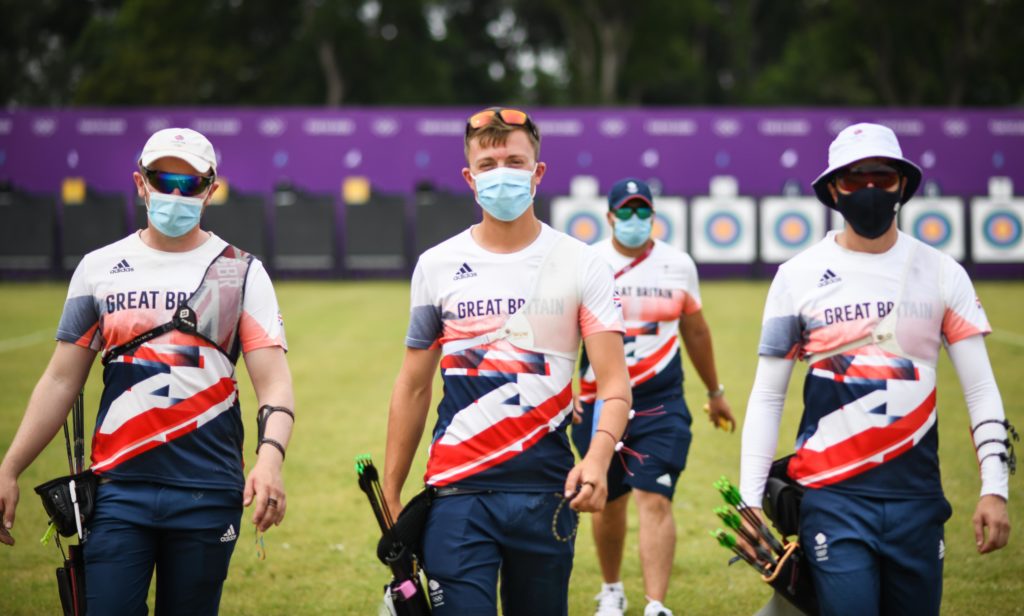
The semifinals beckoned, and the Korean men faced hosts Japan, and for the first time, were seriously tested; the two trading sets. Japan’s men seemed to grow stronger with every visit to the line, and opened the fourth with three great tens. Oh Jin Hyek, anchoring, was unable to get the Koreans over the line. It was a shootoff, and the air seemed to change. Both posted a 28, but the Koreans were closer. Hiroki Muto, at the back of the Japanese team, got us all wondering. A classic archery moment, decided on millimetres. It was definitely a moment of ‘what if’. The hosts dared to dream. They came closer than most.
The other semi saw Taipei shift gears hard against the Netherlands, showing aggression and bite. The subsequent bronze match between the Dutch and Japan saw both sides ready and in the zone. Neither side wanted to give an inch, and neither relaxed. It would be a staring contest. After trading the first two sets, the Dutch put everything in the gold in the third end and poised themselves for victory. Japan hit back, opening with 29, and Sjef’s eight at the back gave Japan a shootoff – and the momentum. This time, Muto drilled the ten down the centre, hugged his teammates, and promptly broke down in tears.
The bronze meant that Japan had a sixth Olympic medal in archery, and a first in the men’s team event. Takaharu Furukawa took a second Olympic medal, after a silver in the men’s individual at London 2012. He joins Hiroshi Yamamoto as the only other Japanese archer to take more than one Olympic medal.
The final showdown, between Taipei and Korea, ended up a straight fight between two unevenly matched teams. Taipei were good, at times very very good, but just as they did in Rio against the Americans, Korea lifted their level up and away. An upgraded arrow in the second gave Korea 60 out of 60, and the turnaround suddenly seemed impossible. A wall had been built, and no-one was getting over it. Oh’s gritty anchoring was exceptional, with Kim Je Deok noisily driving the train. It wasn’t pretty, but it was, as always, breathtakingly good. Even if today, there wasn’t the distance between Korea and the rest of the field seen in the women’s competition yesterday. They had to fight for it.
The 6-0 scoreline didn’t really reflect the quality of Taipei, who had fought hard and shot well with ends of 55, 58, and 55. It was the country’s second Olympic medal in the men’s team event, after a silver at Athens 2004. But the game was changed, again. “In the end we had another year to prepare.” said Oh. “We were able to get to know each other, and reinforce our game.” Kim Je Deok was kind enough to tell us more about his dreams in the surreal press conference afterwards. “I had a dream I was fighting with my best friend. It was a bit of a surprise… I didn’t feel bad after it.”
Oh Jin Hyek now becomes the oldest male archery gold medallist in the modern era, telling us afterwards that he was very used to training with people “younger than me. I treat them as equals, and my friends.” He was also complementary about the younger Je Deok. “I believe that he is the hero of today. Every time we had challenges or difficulties today, he shot a ten and lifted us up.”
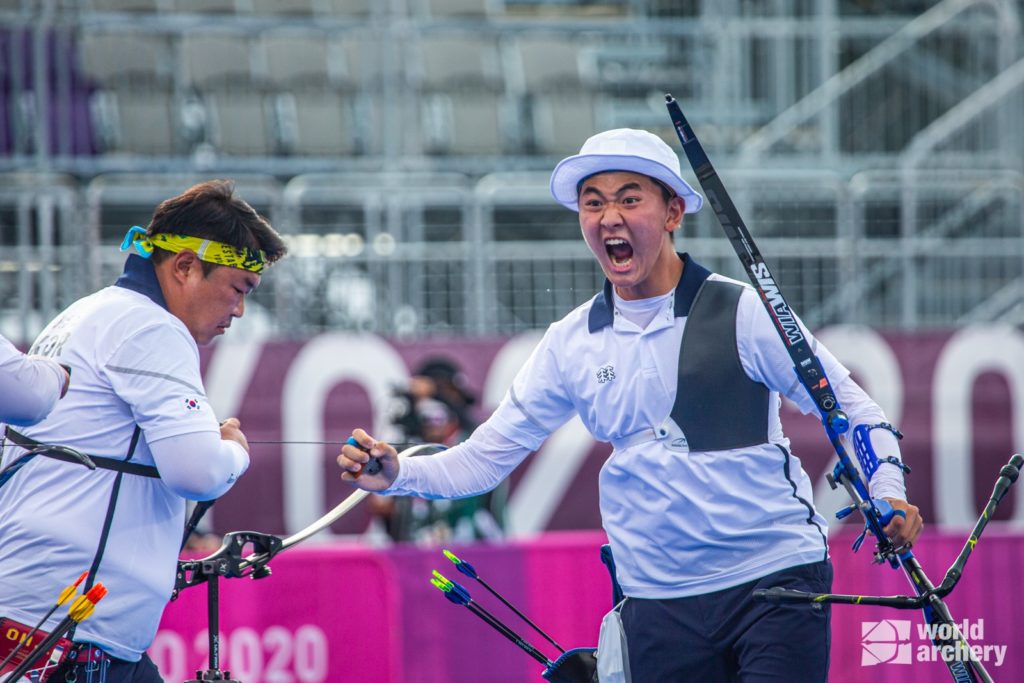
To an observer, it at least looked like a classic sporting narrative; the younger hotshot paired with the wise old champion – even if, in the unforgiving, unsentimental world of Korean recurve, it could just have easily been something very different indeed.
In the end, the two big Asian powerhouses were on the top steps, and deservedly joined by Japan. The Netherlands, however, got us all wondering, and will go home from this meet with their heads high. Korea have now won the men’s team event for a record-extending sixth time at the Olympic Games, when no other country has won this event more than once. But the past is a different country. It’s three out of three for Korea, and you get the distinct feeling that the clean sweep is very much on.


